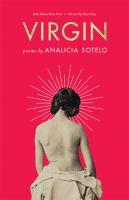
"We're all performing our bruises"
It’s eighty-two degrees and I sit on sun drenched concrete, hot pink book in hand, pebble- small crimson strawberries staining my left hand and right knee. Suddenly, a fluttery brown butterfly wiggles between my thigh and the ground, crouching against my skin. I shriek- being the put together young woman i am- and then quiet, carefully shifting to stare at this beautiful thing that has chosen me to rest against. It flutters upwards too quickly, shooting straight into my neck where its wings rustle kisses much too softly against the most intimate sections of my neck. I shriek and wave my arms again- because i am peaceful and one with the universe, experiencing every little girl’s dream of cupping a butterfly, though definitely not in the proper place- and scream the line of poetry I had just read moments ago: “she was floating like a lost brain cell!!!”
The line is all too simple and visual and connotative. Yes. I know who this is. I can use this. Good poetry feels like that: stunningly familiar and sensible, yet so perfectly said that it must be filed away for future reference.
Analicia Sotelo’s Virgin is so: lush, surprising, and yet all too familiar. Sotelo explores the feminine, specifically the bittersweet single girl in all her conflicted, tired-of-your-bullshit, loving, hungry, reliable complexity. The first sections of the book, aptly named TASTE and REVELATION, root themselves in this girl and her perspective. From an emotional distance, she observes those surrounding her from within their midst at summer barbecues or late night kitchens. Here, there is desire for love and satisfaction, intertwined with innocence, hesitation, memory of her Texas home, and personal myth. This is exactly how the entire book is constructed; though we depart from our single girl and travel backwards, we remain rooted within her multi-faceted identity.
Sotelo paints portraits for her reader, embracing lush and surprisingly logical imagery and metaphor. Such metaphors are not simple and there for the poetics. Instead, the metaphors are reflections of the scene in which it stands, to convey not only a person and their feelings and desires, but also to deepen the setting itself. A strong example of this follows, as our single young woman drifts through a summer potluck. Metaphors reflect her resentful boredom, and her desire for true emotional and physical intimacy.
“I’m a radish tonight, for everyone
has been flowering with careful hellos
and it’s made me red and pungent,
made me sick of potluck drinking
under the stars with the weeds, brushing
their blond hair against my ankles, sick
of the clear buttons of sweat on their skin
and their salty arguments about who’s best
at breathing…”
(Expiration Date, 11)
All metaphor in Virgin is effortlessly intentional, and stunning.
After observing and interacting with men who can’t quite satisfy, the reader is led down the hallway of doors, first to revisit past traumas, revealing how exactly we arrived in this single female body. Sotelo is thoughtful; she does not write with blame or bitterness. Instead, she gingerly examines all angles, including, yes, toxic men, but also, relational complications-“In this the twenty first century / where men still love girls, but rarely admit it, / and history binds you to your signature” (29)- and emotional unavailability- “the place, like me, had its visitation days” (48). We continue to slowly backwards through time, stumbling home to a childhood with a father drifting in and out of view. Slowly, we understand the first sections from within the lens of the girl’s roots; a girl is a history: “I am my mother’s daughter. / I am not afraid to go back in time” (42).
The concept of virginity is slightly questionable, placing value in a touch or experience which is often so very complex and personal. In one realm, all value is given to the virgin, while in other worlds, “when they said Virgin, they meant Version we’ve left behind” (23). So is this a virgin: A myth? In a sense, yes. The book follows every myth revolving ’round the heart: the myth of who she has been: “People think I’m sweet… look now: my heart // is a fist of barbed wire” (8, 18). The myth of the identity of who she had thought she wanted: “so / many people are tender from the right angle” (8). The myth of unreachable fathers. The urban legends behind artists like Frieda Kahlo. The traditional myths, rooted in Ariadne and Theseus. Virgin is, at its core, a book of myth.
The book closes softly, a reflection of every poem and girl portrayed. It is neither sad, nor joyful. Perhaps we fall within our single girl, weighed down with disappointment, building a sort of beautiful funeral pyre, looking for meaning in the rising smoke.
Her bed is an island,
her dreams are a breakthrough,
each vessel finds the pia mater,
sends her to the beach
to collect their driftwood. Burn it.
This is how I find you.
In short, beautiful. Onto my wishlist it goes. Rarely do I find a book of poetry that so seamlessly connects all of its individual pieces into a complex, reflective narrative. I am impressed, and intrigued by this gorgeous book.
